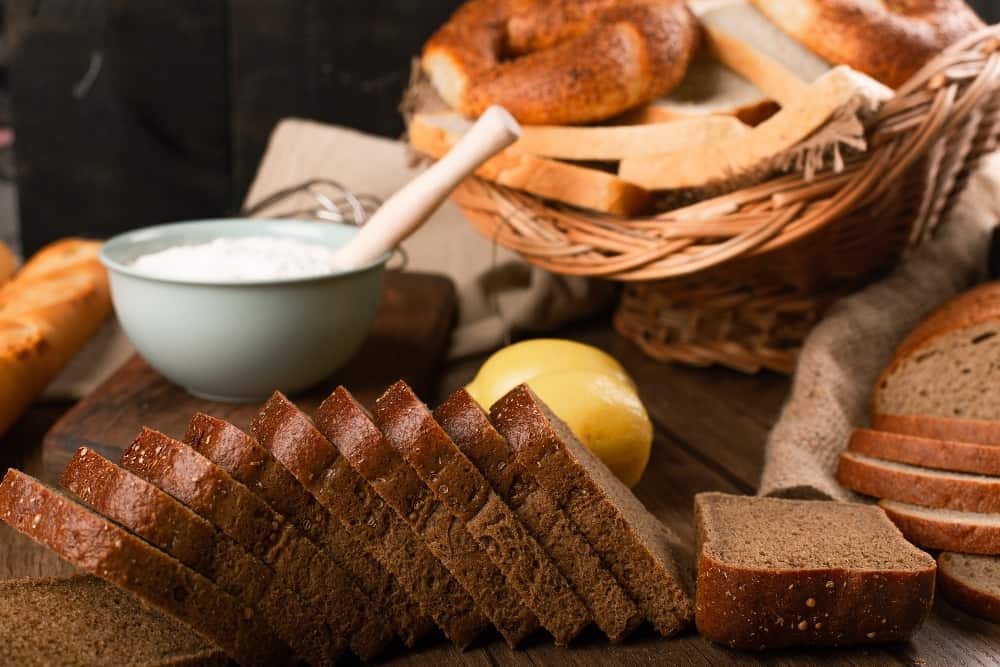
Can a Gluten-free Diet Make You Healthier?
Your doctor will recommend that you go on a gluten-free diet if you have celiac disease or another condition. A gluten-free diet will require you to avoid such foodstuffs that contain gluten, and the most obvious of these are rye, barley, and wheat. Going gluten-free might mean you buy less when you go shopping for food, but there are still healthy dietary options when your health depends on avoiding gluten.
1. The Gluten-free Diet and Celiac Disease
Some grains contain a protein which, when they are used to make pastries, makes the food chewy and elastic. This protein is called gluten, and it passes through the stomach without being digested. When you have celiac disease, gluten irritates the lining of your gastrointestinal tract, eliciting an autoimmune response against your villi.
The destruction of villi makes you unable to absorb nutrients from the food eaten. Therefore, you suffer malnutrition even though you might be taking a balanced diet. Celiac disease is a genetic disorder that affects about one in every hundred people. Avoiding gluten makes you healthy by ensuring you maintain the integrity of your alimentary canal, which allows you to absorb other essential nutrients from any other foods you might eat.
2. Living Healthy with Non-celiac Gluten Intolerance
Being sensitive to gluten might not necessarily mean that you are a celiac patient. You will still elicit the same symptoms of a celiac patient who has eaten gluten. However, there will be no damage to the intestines, and your body will not produce antibodies associated with celiac disease.
Intolerance to gluten requires you to adopt a gluten-free diet to maintain a healthy disposition because when the culprit gluten foodstuff is withdrawn from your diet, your health reverts to normal. Some of the symptoms to look out for include fatigue, abdominal pain, diarrhea, bloating, and a foggy mind.
Removing the gluten-containing food from your diet will improve these symptoms, and the symptoms will return when you eat such a meal again. Non-celiac gluten intolerance affects slightly more people than those who have celiac disease.
3. An Option for People with Irritable Bowel Syndrome
Irritable bowel syndrome is a chronic gastrointestinal disorder with no reliable biomarker or established cause. Whereas diagnosing this condition is quite complicated, differential diagnosis using the Rome III criteria helps distinguish between irritable bowel syndrome and non-celiac gluten sensitivity.
In most cases, you are more likely to self-diagnose non-celiac gluten sensitivity while, in reality, you have irritable bowel syndrome. When you have irritable bowel disease and avoid gluten or go on a gluten-free diet, what you are doing is to eschew a diet rich in other inflammatory compounds such as fructans, which causes bloating and distention.
You will elicit colonic hypersensitivity whenever you experience bowel enlargement, and when you use gluten, you are likely to suffer from diarrhea. Going gluten-free helps improve such symptoms, and thus you do not experience the health risks associated with diarrhea.
4. Naturally Gluten-free Foods
Going gluten-free implies that you’ll avoid some grains which contain gluten. However, not all grains have it, and you can still have a healthy body without these foods. Indeed, the grains you should avoid have some essential nutrients, but you can even obtain these nutrients from other sources such as the following:
- Millet
- Rice
- Corn
- Tapioca
- Arrowroot
- Beans
- Nuts
Another food you need to give a wide berth is triticale, which combines the properties of rye and wheat. While going shopping, be sure to buy only those flours that are not made from wheat. Also, avoid wheat-based foods such as beer, pasta, and croutons unless their labels say that they have no gluten.
It is possible to live healthier when you choose a gluten-free diet. Some of the conditions which will make it necessary for you to choose this path are celiac disease, irritable bowel disease, and non-celiac gluten intolerance. Autism might also benefit from a gluten-free diet, but this requires more research.




2 Comments